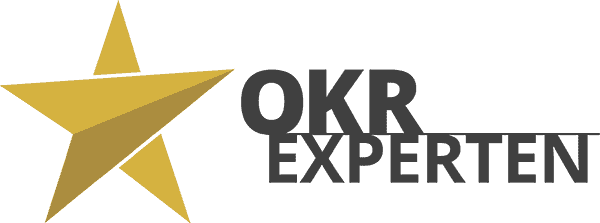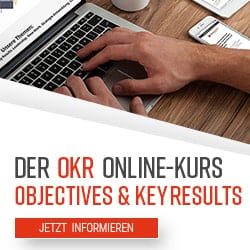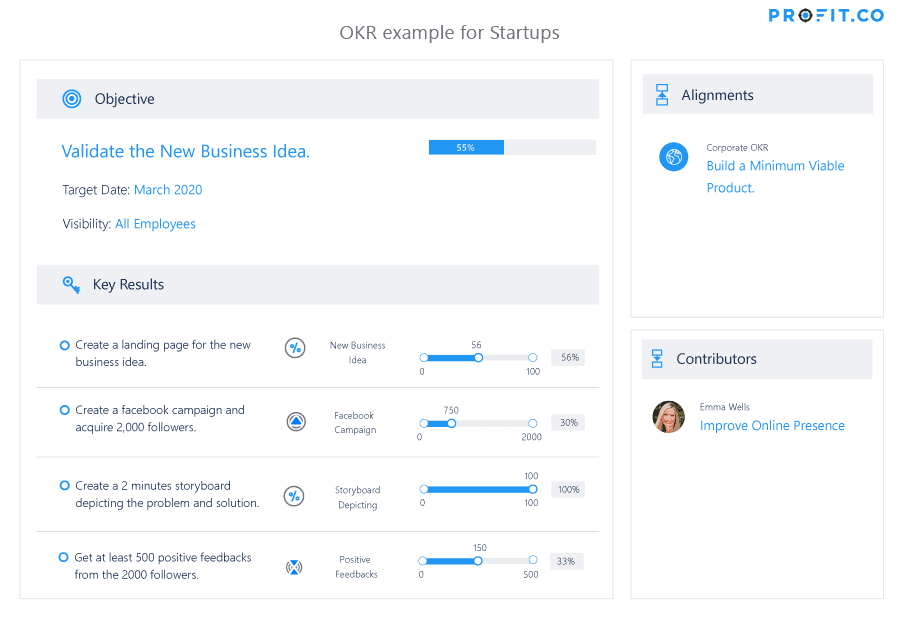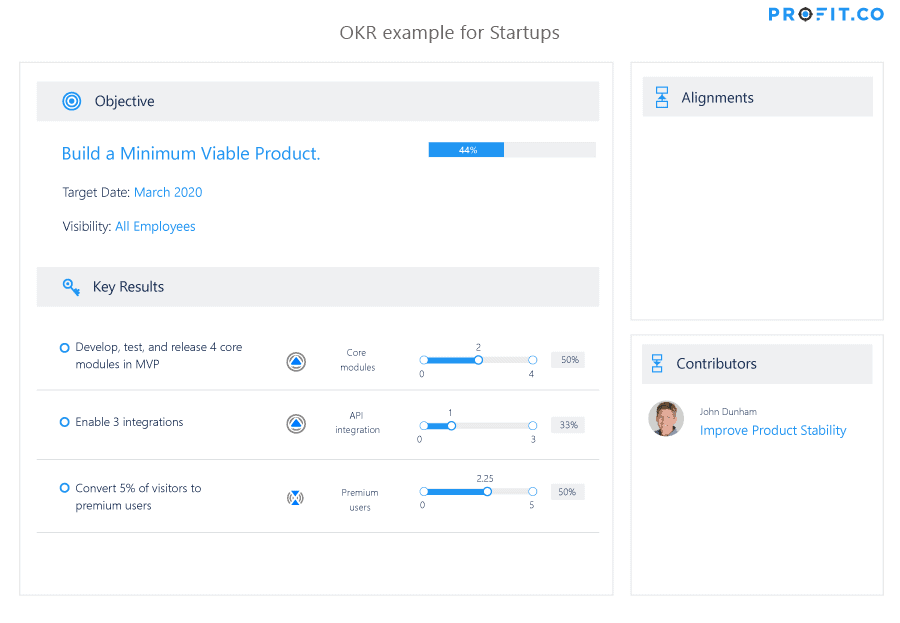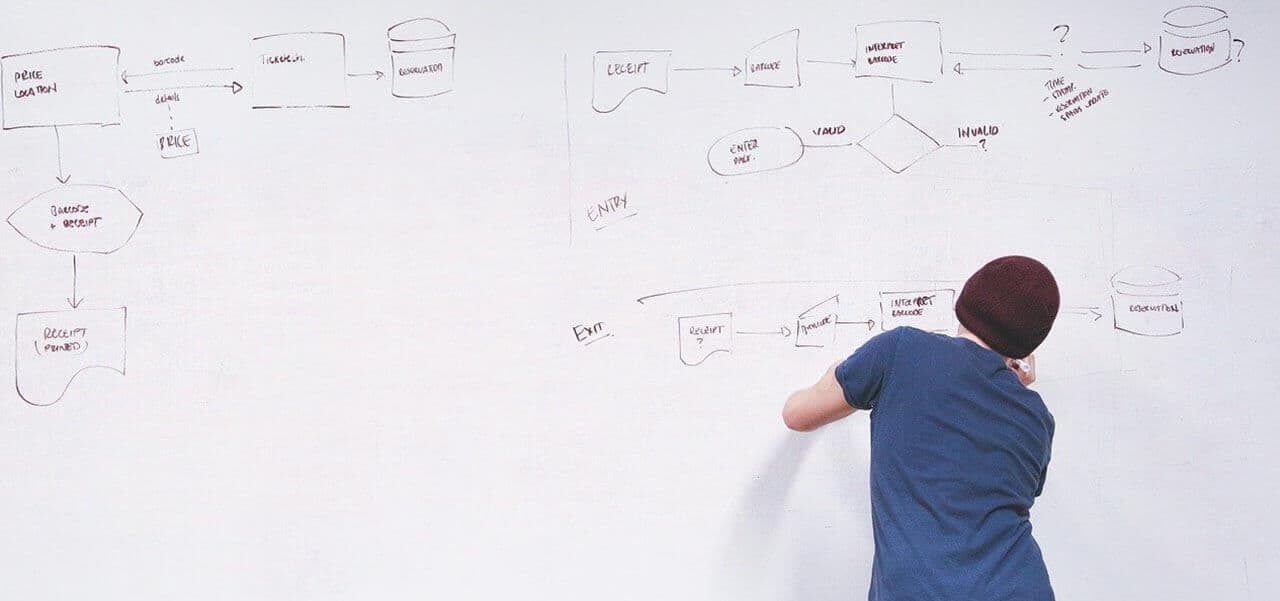
17 Apr Why startups should use OKRs
Why startups should use OKRs
In this article, we will show you how startups can use OKRs for their success. Entrepreneurs set themselves “audacious goals” to change the world with their start-ups. They have crazy ideas and throw their money, their time and their lives behind these ideas. With their tireless efforts and perseverance, they create a solution to a problem and bring it to market. Have you ever wondered how many of them succeed in this endeavor?
According to smallbiztrends.com, only 56% of startups reach their fourth year.
Why do startups fail?
- Ignoring the importance of idea validation
- Over-engineering of the minimum viable product
- Missed the right time for reorientation
- Lack of team alignment with the vision
How can startups stay focused with the help of OKRs?
Your company should have 3-4 objectives with 2-5 key results for each objective at any given time. The OKR methodology is self-regulating and to a certain extent forces you to narrow down your to-do list. And not only that. The to-do list is not a to-do list, but a to-be-achieved list.
There is a subtle difference between the two. “To-Do” focuses on the outputs, while “To-Achieve” focuses on the results. OKR thus enables founders and their teams to forecast, track and continuously monitor results.
How can OKRs help to validate an idea?
Founders need to validate their ideas before they roll up their sleeves and dive into product development. You need to be sure that customers will pay for using the product or service. If they ignore idea validation, they may develop a product and build a startup around the product that nobody wants.
A simple OKR with the key results listed below is already sufficient to validate the product idea. The OKR is time-bound and guides the founders to focus on the key performance indicators and work towards achieving these figures. It also precludes the immediate implementation of new, spontaneous ideas. An OKR focuses only on what is really important to achieve the goal.
If the founders achieve these key results, they can move on to the next step (e.g. building their prototype). But what if they don’t reach these figures? The OKR method allows you to easily repeat the concept test based on the feedback from the campaign. If they still don’t meet their targets after several iterations, it is obvious that the market is not ready for the idea. It is not worth pursuing them any further.
Did you know that Dropbox didn’t have a real product to begin with?
Dropbox is a file storage service for saving and sharing files across different platforms and operating systems. The realization of such a product requires special expertise and a huge amount of resources.
In the beginning, Dropbox therefore did not yet have a mature product. To test his idea, Drew Houston, founder of Dropbox, published a simple video on his website showing Dropbox in operation. In the video, for example, you can see how seamlessly the product works in different operating systems. It received incredible attention and resonance. Dropbox’s beta waiting list grew from 5,000 to 75,000 overnight. Everyone who saw the video assumed it was a product demonstration. However, there was no product yet.
Testing a concept is therefore many times easier and cheaper than testing a finished product, especially with the tight budget available to most start-ups.
How can OKRs help you build the right MVP?
You have tested your idea and it seems to work. Now you develop a minimum viable product, a prototype. An MVP comprises as few functions of the end product as possible. It is only used to test your product and find out how customers interact with it.
In classic product development, there is sometimes a tendency to take up every good idea that comes to mind. These spontaneous ideas are often mistakenly interpreted as useful functions. The development team should incorporate this idea into the MVP, right?
Consider the following: Adding a new function out of the blue takes time. It pushes the release dates further back. If start-ups need so much time to produce even simple functions, this gives their competitors an advantage. The original idea provider is losing market share. It takes discipline to narrow down goals. To achieve significant results, we need to prioritize important tasks. Only then can we move on to less important things. If you use OKRs to develop MVPs, you can use them to create a targeted list of functions and implement them. The use of OKRs can prove to be very practical in precisely this phase.
OKRs can support start-ups in the following ways:
- OKRs help you to focus on the customer’s problem and your solution to this problem.
- When creating the prototype, they provide guard rails with minimal but necessary functions.
- By using OKRs, they avoid those functions that are helpful and useful but do not need to be implemented in the MVP.
This is what the OKR of a start-up could look like:
This OKR, or a version of it, helps the team to bring their MVP to market as early as possible. It ensures that the team concentrates on the essentials. It also helps to avoid implementing your own spontaneous preferences and ideas.
How can OKRs help your startup to reorient itself at the right time?
The main goal of MVP is to test how the market reacts to your product. To do this, you need to record the reactions of your customers, analyze the performance of your MVP and classify the results. For example, MVP results could be measured by new registrations and premium registrations.
Comparing the results with your expectations gives you security and orientation for your next phase of product development. Not only does it save your startup from building something no one wants, but it can actually put you on the path to something everyone wants.
These results, combined with customer feedback, will help you decide whether the project needs to be expanded or perhaps modified. If you customize your MVP at the right time with the help of OKRs, then you are well on your way to building your startup as effectively and efficiently as possible.
You can find out more about start-ups and OKRs in our expert magazine.

